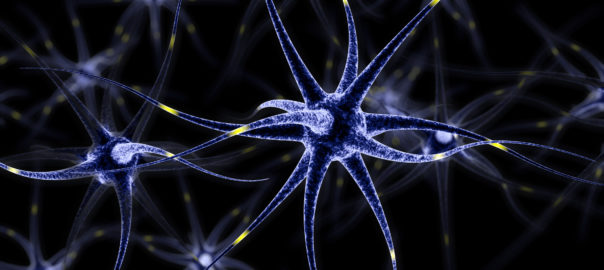In this week’s article, we provide a roundup of some of the most recent health and nutrition related articles to be in the news, four items comprising:
- Extra-virgin olive oil preserves memory, protects brain against Alzheimer’s
- Alzheimer’s linked to poor sleep patterns in new study
- Good nutrition, physical training and mental exercises can reverse physical frailty in the elderly
- Brain-impaired elderly subjects appear to most benefit from cocoa flavanols: Review
Extra-virgin olive oil preserves memory, protects brain against Alzheimer’s
The Mediterranean diet is associated with a variety of health benefits, including a lower incidence of dementia. Now, researchers at the Lewis Katz School of Medicine at Temple University (LKSOM) have identified a specific ingredient that protects against cognitive decline: extra-virgin olive oil.
In a new study, the researchers show that consumption of extra-virgin olive oil protects memory and learning ability and reduces the formation of amyloid-beta plaques and neurofibrillary tangles in the brain — classic markers of Alzheimer’s disease.
“We found that olive oil reduces brain inflammation but most importantly activates a process known as autophagy,” explained senior investigator Domenico Praticò, MD, Professor in the Departments of Pharmacology and Microbiology and the Center for Translational Medicine at LKSOM.
Previous studies have suggested that the widespread use of extra-virgin olive oil in the diets of people living in the Mediterranean areas is largely responsible for the many health benefits linked to the Mediterranean diet.
Dr. Praticò and colleagues plan next to investigate the effects of introducing extra-virgin olive oil into the diet of the same mice at 12 months of age, when they have already developed plaques and tangles.
Read the full article via this link.
Related Cytoplan blogs
Is it okay to cook with extra virgin olive oil?
Alzheimer’s Disease, sleep and melatonin
Alzheimer’s linked to poor sleep patterns in new study
Poor sleep may increase the chances of people at risk of Alzheimer’s developing the disease, a study has shown.
Scientists test spinal fluid of 101 participants to trace toxic brain proteins related to disease and found least well rested most likely to develop condition. Participants who reported the worse sleep quality or suffered from daytime drowsiness had more biological markers for Alzheimer’s than those without sleep problems.
The researchers looked for signs of beta-amyloid, clumps of toxic brain protein linked to Alzheimer’s, and “tau tangles”, knots of protein within nerve cells also associated with the disease. Not everyone with sleep problems in the study had abnormalities in their spinal fluid, the researchers pointed out. For example, there was no link between biological markers for Alzheimer’s and obstructive sleep apnoea.
Lead scientist Dr Barbara Bendlin, from the University of Wisconsin-Madison in the US, said: “Disrupted sleep or lack of sleep may lead to amyloid plaque build-up because the brain’s clearance system kicks into action during sleep. Our study looked not only for amyloid but for other biological markers in the spinal fluid as well.”
Read the full article via this link.
Related Cytoplan blogs
Alzheimers and Dementia research
The link between stress and brain health
Elevated homocysteine – a risk factor for Alzheimer’s Disease?
Good nutrition, physical training and mental exercises can reverse physical frailty in the elderly
Physical frailty is common among the elderly and is strongly associated with cognitive impairment, dementia and adverse health outcomes such as disability, hospitalisation, and mortality.
A four-year study showed that a combination of nutritional, physical and cognitive interventions can reverse physical frailty in elderly people. Participants for the trial were recruited from October 2009 to August 2012 from various senior activity centres in Singapore.
They were randomly allocated to receive lifestyle interventions in one of five groups for a period of six months. Three groups of participants were provided with either physical training, nutritional enhancement or cognitive training, while the fourth group received a combination of all three interventions. The last group was a control group which did not receive any intervention.
The trial was conducted in collaboration with Khoo Teck Puat Hospital and St Luke’s Hospital.
Read the full article via this link.
Related Cytoplan blogs
Homocysteine and cognitive decline
The importance of nutrition for musculoskeletal health
Vitamin D “reduces the risk of falling” – the mechanisms unfolded
Brain-impaired elderly subjects appear to most benefit from cocoa flavanols: Review
Flavanol-rich chocolate is well known for its beneficial effect on the brain, but a review by Italian researchers point towards its neuroprotective effects in vulnerable populations over time. Older adults, whose memories have started to decline, or who have other mild cognitive impairments, appeared to benefit most from ingesting this food for a prolonged period.
The research team noted the cognitive beneficial effects’ link to improvements in blood pressure and insulin resistance, suggesting a role of endothelial function and glucose sensitivity in controlling cognitive function.
The review takes into account close to 50 randomised controlled trials detailing the effects of acute and chronic administration of cocoa flavanols on different cognitive domains.
Whilst the majority of the studies focused on middle aged subjects, findings from elderly adults were “unexpected” and “promising,” according to the authors. Daily consumption of a flavanol-rich cocoa drink looked to have positively affected cognition, leading to improvements in performance in older adults with early memory decline, according to one study and in cognitively intact elderly subjects in another study.
Read the full article via this link.
Related Cytoplan blogs
Indulging in Resveratrol & Cocoa Flavanols for Christmas?
National chocolate week – The benefits of eating dark chocolate
Polyphenols: helath benefits, dietary sources and bioavailability
If you have any questions regarding the topics that have been raised, or any other health matters please do contact me (Clare) by phone or email at any time.
clare@cytoplan.co.uk, 01684 310099
The Cytoplan editorial team: Clare Daley, Joseph Forsyth and Chris Skal.
Last updated on 21st July 2017 by cytoffice

